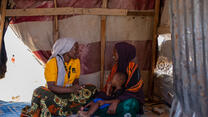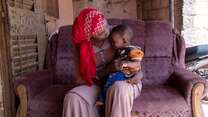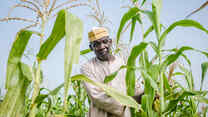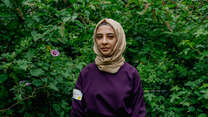In recent years, a record number of people have become displaced. Within that surge, several significant trends have emerged. These include the fact that displacement has become more protracted and that a growing number of refugees and other displaced people are settling in urban centers rather than camps or other ad hoc settlements. Globally an estimated 60% of all refugees now live in urban areas.
These trends mean that in practical terms, prevailing approaches and programs originally designed to support refugees for short-term stays in refugee camps must be adapted to meet the needs of people staying for longer periods of time and in more established cities and towns. At the core of these adjustments there must be a commitment to fostering self-reliance, empowerment, and social cohesion.
The International Rescue Committee (IRC), the Centre for Global Development (CGD), Open Capital (OC), Kampala Capital City Authority (KCCA), and the Nairobi City County Government (NCCG), with support from the IKEA Foundation have all partnered to meet this challenge through the Refugees in East Africa: Boosting Urban Innovations for Livelihoods Development (Re:Build) program.
Re:Build seeks to:
- Generate and share evidence for innovative, sustainable livelihoods solutions that can be adopted to support refugee and host residents in East Africa and elsewhere.
- Enable refugees and vulnerable host residents to achieve economic self-reliance and benefit from strengthened urban economic, regulatory, and social environments.
- Foster change at varying levels, from better access to livelihood opportunities and inclusive services within communities, to improved refugee-related policies and more targeted service delivery by national, regional, and global actors.
The Re:Build program rests on three pillars:
- Service Provision – delivering livelihood services and community and market-oriented interventions to 20,000 clients in low-income neighbourhoods in Nairobi and Kampala cities.
- Evidence and Learning – gathering evidence and learning though an iterative process of testing using pilots, randomized control trials, monitoring data, and other tailored methods that help build the picture of what works to improve urban refugee livelihoods.
- Influence and Adoption – establishing a bold influencing agenda aimed at changing policies, practices, and investments at national, regional, and global levels by encouraging adoption of program evidence and learning.
Read this report to learn more about the status of refugee-focused policies and legislation in the contexts where Re:Build is at work.



